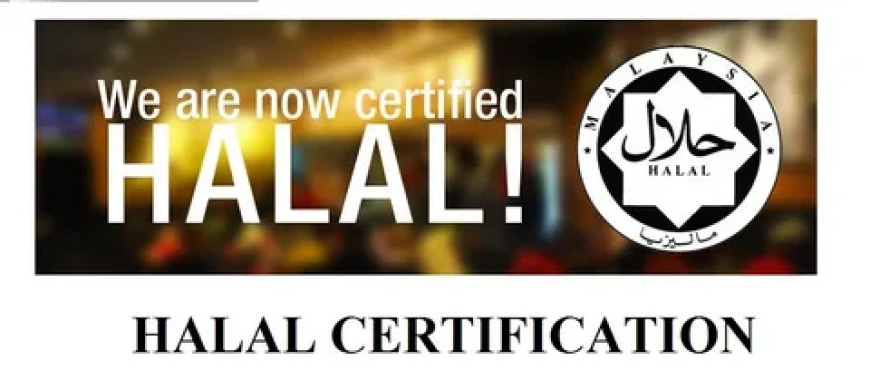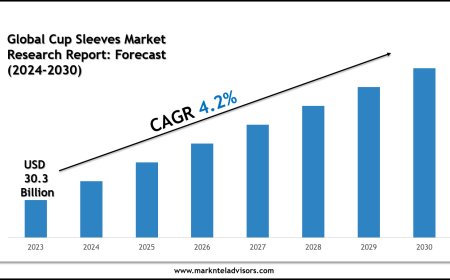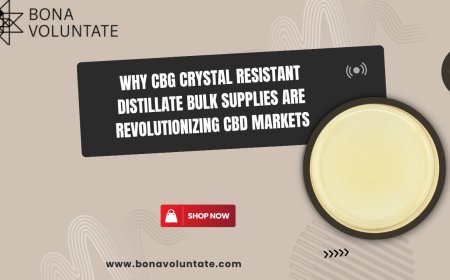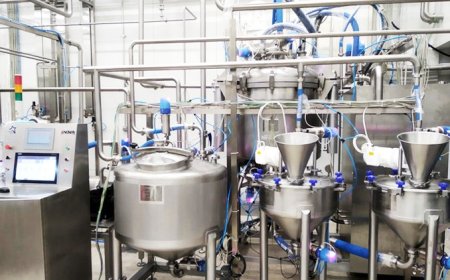Your Guide to HALAL Certification in the UK: Standards, Process & Benefits
Let’s be real for a second—navigating compliance certifications can feel overwhelming. If you’re looking to expand your business into new markets or win consumer trust, especially in the Muslim community, HALAL Certification UK might just be your golden ticket.

Table of Contents
-
Introduction
-
What Is HALAL Certification?
-
The Meaning Behind "HALAL"
-
Why It Matters to Consumers
-
-
HALAL Certification UK: The Core Requirements
-
Eligibility Criteria for Businesses
-
Certification Bodies in the UK
-
-
Step-by-Step Process to Get HALAL Certified in the UK
-
Step 1: Preparing for Certification
-
Step 2: Application & Documentation
-
Step 3: On-Site Audit & Compliance Check
-
Step 4: Receiving the HALAL Certificate
-
-
How HALAL Certification Boosts Business
-
Winning Consumer Trust
-
Accessing Global HALAL Markets
-
HALAL + ISO Certification: A Powerful Combo
-
-
Industry Use Cases for HALAL Certification
-
Food Industry
-
Cosmetics & Pharmaceuticals
-
Catering & Hospitality
-
-
HALAL vs ISO: Complementing Standards
-
Understanding the Key Differences
-
Integrating ISO Certification Services
-
-
What to Avoid: Common Mistakes in HALAL Certification
-
Misunderstanding Guidelines
-
Incomplete Documentation
-
Non-Compliant Suppliers
-
-
Why Choose ISO Certification Services in the UK?
-
Local Expertise
-
Small Business Support
-
London-Based Services
-
-
Conclusion
-
FAQs
Introduction
Lets be real for a secondnavigating compliance certifications can feel overwhelming. If youre looking to expand your business into new markets or win consumer trust, especially in the Muslim community, HALAL Certification UK might just be your golden ticket.
But what is it exactly? How does it work in the UK? And how does it tie into other compliance frameworks like ISO certification services?
Dont worrywere breaking it all down, step by step. This is your easy-to-read, no-fluff guide to HALAL certification in the UK.
What Is HALAL Certification?
The Meaning Behind "HALAL"
The word HALAL simply means permissible in Arabic. In a business context, especially in food, cosmetics, and pharmaceuticals, HALAL refers to products that meet Islamic dietary and ethical standards.
This includes:
-
Clean sourcing of ingredients
-
Ethical production methods
-
No cross-contamination with non-HALAL substances (like pork or alcohol)
Why It Matters to Consumers
Globally, the Muslim population is over 1.9 billionand they care about what goes into their bodies and homes. That means HALAL isnt just a niche; its a massive market opportunity.
In the UK alone, Muslim consumers spend billions annually on HALAL food, personal care, and pharma products. Having a HALAL Certification UK logo on your product boosts credibility, trust, and salessimple as that.
HALAL Certification UK: The Core Requirements
Eligibility Criteria for Businesses
To apply for HALAL certification in the UK, your business must:
-
Operate within an applicable industry (food, cosmetics, hospitality, etc.)
-
Ensure all raw materials are HALAL-compliant
-
Have separate processing lines (if producing non-HALAL products)
-
Follow strict hygiene and cross-contamination protocols
Even packaging and transportation need to align with HALAL requirements. Sound familiar? These overlap with many ISO 9001 certification UK and workplace safety standards.
Certification Bodies in the UK
Some of the major HALAL certification bodies in the UK include:
-
Halal Food Authority (HFA)
-
Halal Monitoring Committee (HMC)
-
The Islamic Foundation of Ireland (recognized in the UK)
Always choose a body thats internationally recognized, especially if you plan to export.
Step-by-Step Process to Get HALAL Certified in the UK
Step 1: Preparing for Certification
Before jumping in, assess your supply chain, ingredients, processes, and staff awareness. This is similar to the prep work youd do for ISO certification services like ISO 14001 certification UK or EMS certification.
Step 2: Application & Documentation
Next, submit your application. Youll need:
-
Product details
-
Ingredient sources
-
Supplier certificates
-
Hygiene SOPs
-
Production flowcharts
Detailed documentation is non-negotiableespecially for traceability and data security compliance.
Step 3: On-Site Audit & Compliance Check
A certification body will visit your facility for a full inspection. Theyll:
-
Observe production
-
Review documentation
-
Interview staff
-
Assess hygiene controls
If you're already familiar with ISO 27001 certification UK audits or occupational risk management, youll handle this like a pro.
Step 4: Receiving the HALAL Certificate
Pass the audit, and youll receive your HALAL certificate. This is usually valid for 1 year, with annual renewals and surprise audits to maintain credibility.
How HALAL Certification Boosts Business
Winning Consumer Trust
A HALAL logo does more than check a boxit sends a powerful message that your brand respects diverse consumer values. That emotional trust translates into long-term loyalty.
Accessing Global HALAL Markets
Countries like Malaysia, Indonesia, Saudi Arabia, and UAE require HALAL certification for imports. So if youre planning to scale globally, this certificate is your ticket to trade.
HALAL + ISO Certification: A Powerful Combo
Pairing HALAL with ISO certification services multiplies your advantage. For example:
-
HALAL + ISO 9001 certification = Quality + Compliance
-
HALAL + ISO 27001 = Ethical + Secure
-
HALAL + ISO 14001 = Sustainable + Responsible
These pairings are especially useful in food industry ISO certification, pharmaceuticals, or tech where device safety and performance matter.
Industry Use Cases for HALAL Certification
Food Industry
From meat processing to snack foods, the UK HALAL food sector is thriving. Restaurants, manufacturers, and even supermarkets benefit from certified trust.
Cosmetics & Pharmaceuticals
Yes, even lipsticks and painkillers need to be HALAL if targeting Muslim customers. Ingredients like alcohol or animal-derived gelatin are a red flagso certification proves compliance.
Catering & Hospitality
Hotels, caterers, and airlines offering HALAL-certified meals are more likely to win contract bids, especially in diverse cities or global regions.
HALAL vs ISO: Complementing Standards
Understanding the Key Differences
| Feature | HALAL Certification | ISO Certification |
|---|---|---|
| Purpose | Religious & ethical compliance | Operational, quality, and risk management |
| Scope | Ingredients, process, and hygiene | System-wide processes and performance |
| Recognition | Muslim consumer markets | International businesses and regulators |
Integrating ISO Certification Services
Businesses already investing in ISO certification services in UK can easily build HALAL into their workflow. The disciplines align welllike risk management ISO 27001 or disaster recovery planning, where traceability is key.
What to Avoid: Common Mistakes in HALAL Certification
Misunderstanding Guidelines
Not all vegetarian or alcohol-free products are HALAL. Dont assumecheck every ingredient, supplier, and process for compliance.
Incomplete Documentation
Your product may be HALAL, but if your documents arent airtight, you wont pass. Think of it like an ISO 9001 auditproof is everything.
Non-Compliant Suppliers
Using third-party suppliers? Make sure theyre HALAL certified too, or your entire chain could fail the audit.
Why Choose ISO Certification Services in the UK?
Local Expertise
UK-based ISO experts understand both HALAL and ISO standards, helping businesses streamline processes without getting lost in translation.
Small Business Support
Dont worry if youre not a multinational. There are plenty of ISO certification services for small businesses UK that tailor support for startups and SMEs.
London-Based Services
If you're near the capital, working with an ISO certification service London ensures faster site visits, in-person audits, and region-specific guidance.
Conclusion
In a world where trust is currency, HALAL certification goes beyond religious complianceits a smart business move. Whether you're in food, pharma, beauty, or hospitality, having the HALAL Certification UK stamp on your product opens doors to new markets, deeper trust, and sustainable growth.
Better yet? Pair it with ISO standards for a powerful combo that blends ethics, quality, safety, and performance. The market is waitingand now, you're ready to lead.
FAQs
1. How long does it take to get HALAL certified in the UK?
The process typically takes 2 to 6 weeks, depending on how well your documentation and processes are prepared.
2. Can I combine HALAL certification with ISO audits?
Yes! Many businesses integrate HALAL certification into their ISO 9001 or ISO 22000 audits for efficiency and consistency.
3. Does HALAL certification cover packaging and transport?
Absolutely. Packaging materials and logistics must also meet HALAL standards to prevent cross-contamination.
4. Is HALAL certification mandatory in the UK?
Its not legally required, but its essential for targeting Muslim consumers or exporting to countries where HALAL is mandatory.
5. How often do I need to renew HALAL certification?
Most certifications are valid for one year. Annual audits are required to maintain compliance and renew the certificate.
Sponsored article: Middle East and Africa Omega-3 Ingredients for Pharmaceuticals Market Overview: Growth, Share, Value, Size, and Scope





































